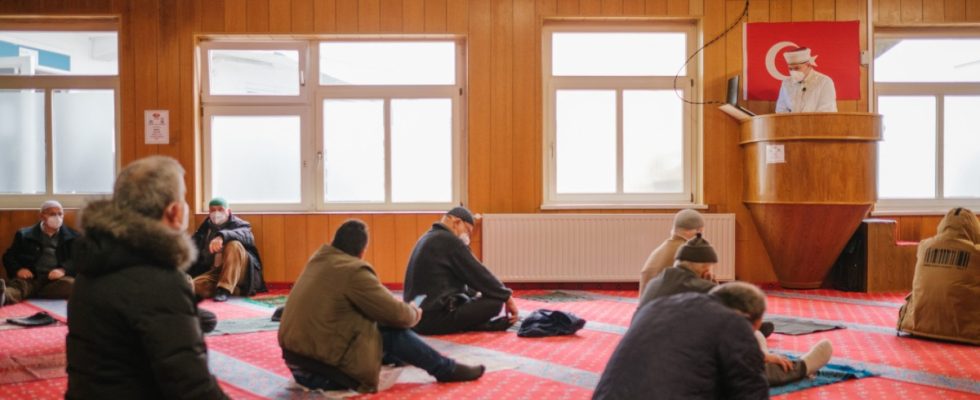It will be a replacement in small steps. The federal government wants to reduce the number of imams who were trained in Turkey and preach in German mosques. After months of negotiations, Federal Interior Minister Nancy Faeser (SPD) signed a corresponding agreement with the Turkish religious authority Diyanet and the mosque association of the Turkish-Islamic Union of the Institute for Religion (Ditib). The plan is to train 100 Islamic clergy in Germany every year and use them to replace clergy from Turkey.
“We need preachers who speak our language, know our country and stand up for our values,” explained Interior Minister Faeser on Thursday. “We want imams to be involved in the dialogue between religions and to discuss questions of faith in our society.” The agreement is a “milestone for the integration and participation of Muslim communities in Germany”.
Imams who were trained in Germany should speak in the mosques
No hate messages and less Turkish nationalism in Germany’s mosques, reliable communication of democratic values in religious areas, plus a little more insight into Muslim communities – this can be summarized what Faeser wanted to achieve in tough negotiations with the Turkish religious authority Diyanet. 1,000 imams are currently working in Germany, who were sent to the Federal Republic by the government authority, for four years each and as Turkish civil servants. The clergy’s ties to the authoritarian government of Turkish head of state Recep Tayyip Erdoğan have long been considered problematic.
So now we need to create independent structures, including in our heads. Little by little, more imams trained in Germany should speak in German mosques and replace the preachers socialized in Turkey. It won’t be easy; unbundling will take years. Because of the necessary separation of church and state, the federal government must leave the training of clergy to the respective religious communities.
In addition, many Muslim communities are short of money; there is no financing system like church tax. Appointing imams independently is therefore often impossible, even organizationally. So we remain dependent on Germany’s largest mosque association, Ditib, to which around 950 of the 2,600 mosques in Germany belong. Ditib, in turn, is close to the Turkish state religious authority Diyanet – even though the association is registered as an independent association in Germany and has always denied being an extension of the Erdoğan government.
Nancy Faeser also knows that the mosque association is only seen as politically trustworthy to a limited extent and is seen by many as problematic. However, Ditib remains the federal government’s interlocutor on the issue of appointing imams. Because there are now trained imams in Germany. For example, at the Islamkolleg Deutschland in Osnabrück, which is financially supported by the federal government, the first class of 2022 completed a two-year preacher training course after studying Islamic theology. 35 additional women and men are still in training.
Faeser wants to recruit people who have studied theology in Turkey
However, Faeser’s goal of training 100 clergy in Germany every year is far from being achieved. The federal government therefore wants to strengthen the training program at the Islamkolleg Osnabrück with 500,000 euros per year. A cooperation is planned with Ditib, which wants to qualify around 25 imams a year in its academy in North Rhine-Westphalia. But Faeser also wants to recruit people who have studied theology in Turkey so that they can begin their additional training as imams in Germany – until at some point a preacher from Turkey is no longer needed. The technical supervision of this transition phase is to be transferred from the Turkish religious authority Diyanet to the German mosque association Ditib, after all an association that is subject to German law, by the summer of 2024. Ditib is also responsible for monitoring the learning content.
The latter met with criticism on Thursday. Lamya Kaddor, domestic policy spokeswoman for the Green parliamentary group, has long called for the influence of preachers from Turkey to be stopped. The planned training reform is an “important first step,” she explained. To what extent Ditib can take over the technical supervision of training “remains to be seen”. According to Kaddor, the goal remains to recognize and promote “liberal, progressive forces of Islam in Germany” as partners.

